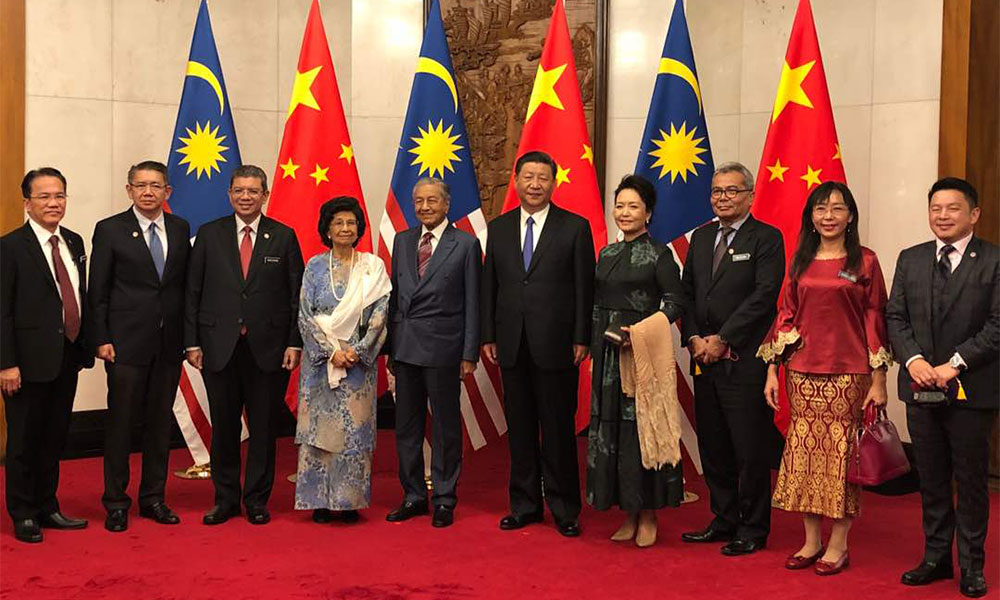
There is no doubt China is a great power. Even in the mid-19th Century, when its powers had begun to ebb, China and India together constituted 40 percent of the world's Gross Domestic Product (GDP). India by then was already colonised too, and China was failing slowly. Despite such circumstances, China was still dominant.
Thus, China's "peaceful rise", "resurgence", or what one may call it in future, has that historical backdrop. China will bounce back, and in more ways than one has got itself ensnared in a geopolitical twist by insisting on a dream to be a fully developed power by 2049.
The US is now wondering if China can be a "responsible stakeholder" in the region and the world - a term used by former president of the World Bank, Robert Zoellick - if parts of the South China Sea have already been militarised with runways and the works that can have military applications that run counter to the interests of the US and other powers.
Every year, close to US$5 trillion worth of global trade, according to William Pesek of Bloomberg, traverses the South China Sea. The stakes are high and determine the rise and fall of the entire world. China's huge presence in the South China Sea cannot be glibly ignored.
To be sure, even if power is reduced to two metrics - hard and soft power - China already has both. While China does not have military bases all over the world, with the exception of a military base in Djibouti, China’s four modernisations, as proposed by the late Deng Xiaoping, has always included military modernisation too. And, China is fast catching up with the US and other powers in the Indo-Pacific too.
Why do countries fear China?
Given all the glossy profiles of China, including its Belt and Road Initiative, why do some Asian countries still fear it? Here, there is a need for a strategic pause.
This question should be posed to the mainland Chinese first: in spite of all that China has achieved, since its Open Door Policy began in 1979, which has helped to raise nearly 800 million people out of poverty, why do mainland Chinese still want to leave China?
In fact, every well-to-do Chinese is not allowed to transfer more than US$50,000 out of the country each year, beginning in 2017.
In more ways than one, China itself is financially rich but unstable. To date, no one knows the extent of the bad debts in the Chinese economic or financial system. The shadow banking system in China is a threat to the major banking system in China, if not the world.
Malaysia would relish nothing else but to be a friend of China. But if one were to look objectively at contemporary China, it is a huge power, indeed a rich one, yet one not devoid of systemic risks both within China and abroad as yet.

By extending the trade talk with the US by another 90 days, for example, China has not averted a trade war with the US at all but merely postponed it.
Malaysia wants to be a friend of China. But China has to get its act together too. Detaining 800,000 or more Uighur Muslims in "re-education" camps seems like a dangerous move.
If there are incidents of violence, how do Malaysian leaders, all of whom are democratically elected in this Muslim-majority country, defend China without risking their own political offices? Such issues must be processed and understood by China without fail.
In turn, Japan does not seem to have such issues to pose a potential headache for Malaysian office bearers. The Tokyo Olympics 2020 is coming up too, followed by the Osaka World Expo in 2025.
The event's organisers will work closely with Qatar too.
Coincidentally, the emir of Qatar is on a visit to Malaysia. He has every hope of working closely with Malaysia and Japan, then China, if Xinjiang does not mishandle the Uighur Muslim issues.
PHAR KIM BENG was a multiple award-winning Head Teaching Fellow on China and Cultural Revolution in Harvard University. - Mkini


No comments:
Post a Comment
Note: Only a member of this blog may post a comment.